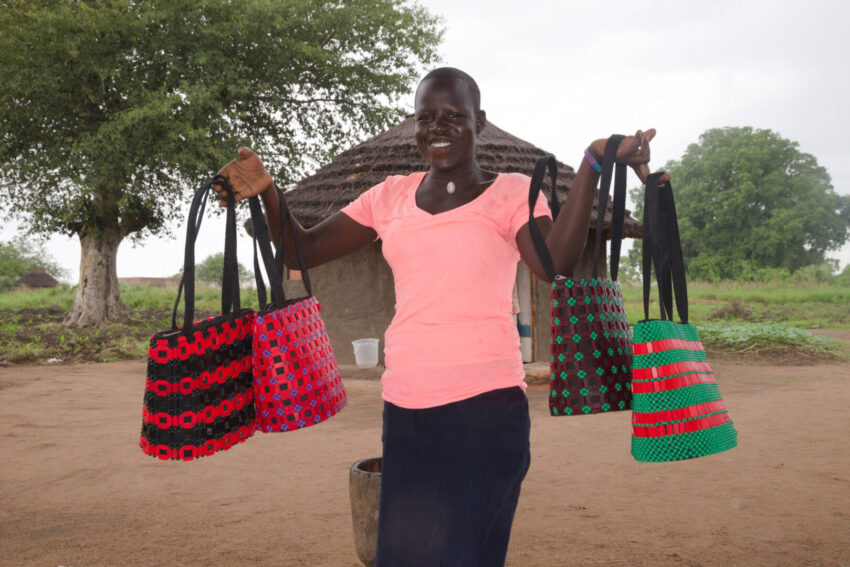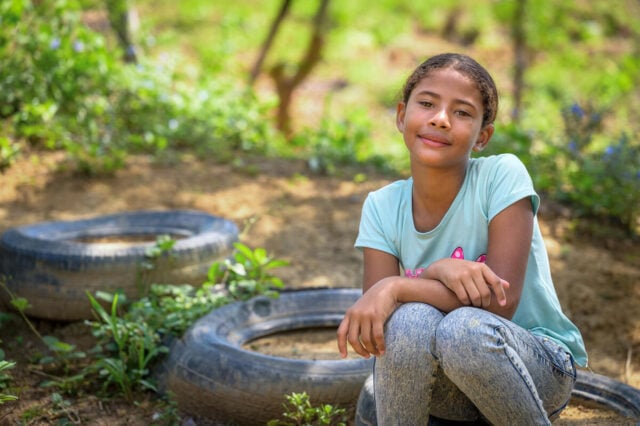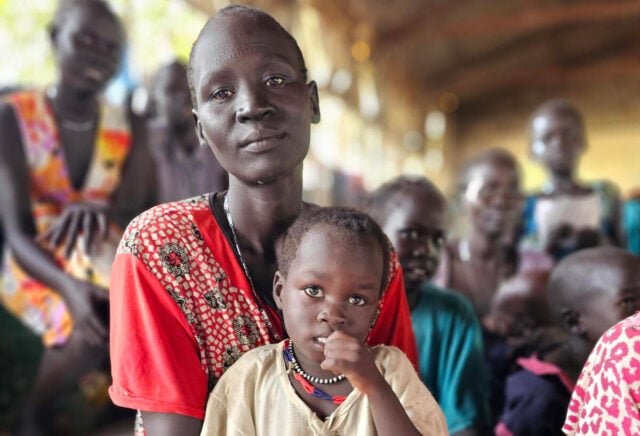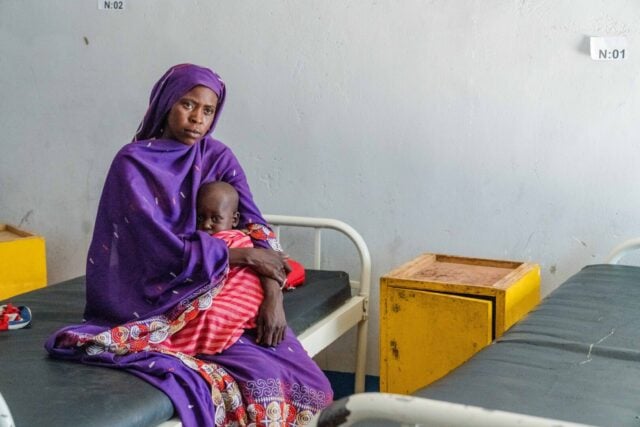Dominca tears up remembering her journey in 2016 from South Sudan to a refugee camp in Uganda. She and her four children — the youngest only 1 month old — fled the war and attacks on her family. Then 25, the single mom was like so many fleeing the political unrest in South Sudan.
“When the war broke out, my children and I stayed in the bush for days with no food,” says Dominca, now 30. “Coming to such a peaceful environment in Uganda is a like miracle. Now, all I needed was to acquire skills that would help me to earn a living, not only here in the settlement but also after I return home.”
Adjumani district, with more than 215,000 refugees, has the second-largest refugee population in Uganda because of its proximity to South Sudan — 60% of these are women.
Research shows that working-age refugee women are less likely to be economically active, in comparison with both local women and refugee men, which increases the vulnerability of women in the refugee camps, and particularly for female heads of households.
Striving to ensure their families’ livelihoods, many of the economic activities that refugee women undertake prove unstable and sometimes expose them to unexpected dangers such as sexual and gender-based violence.
Weaving a better future
World Vision is offering an opportunity for refugee women to learn income-generating skills. The weeklong trainings teach the basics of basket weaving and bag making.
For the trainings, World Vision invited a master weaver to teach. Women learned about using beads of different shapes and colors, as well as threads to craft beautiful bags.
“When I started learning basket weaving, I didn’t even know how to hold the needle, but now I am an expert,” says Dominca, the chairperson of Tamama Women’s Group. “I am able to make bead bags and even weave baskets that I am proud of, and since I am earning money and contributing to the expenses at home, life is far better.” As the chairperson, she’s also learning critical leadership skills.
After only a few weeks fulfilling customers’ orders, the group has already earned more than $2,000 in profit, with more expected as they continue to increase orders from back home in South Sudan.
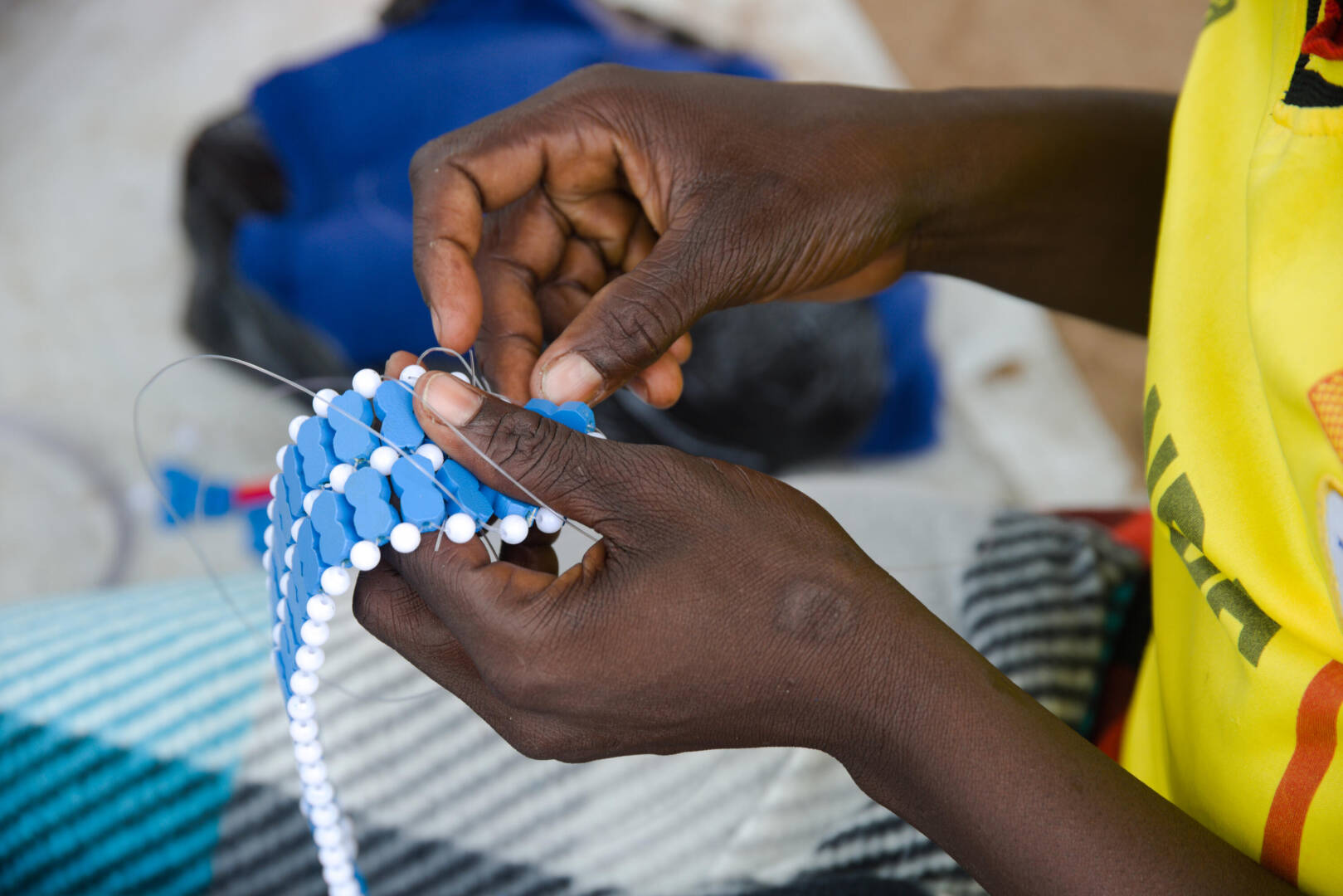
Beyond basket weaving
Jesca Alanyo, who heads the project, says that despite the many initial challenges, the women have come a long way. “One of the best parts about this program is that it not only teaches women the craft skills needed for making bags and basket weaving but it also connects them to a market for their works, and with each other for ongoing support and encouragement.”
In addition to the crafting skills, the trainings cover business and savings groups management, as well as how to approach financial institutions.
“When we were starting, some women couldn’t read nor write,” says Jesca. “Many couldn’t even speak in public. [A] few months down the road, these women have changed. They have acquired critical skills that they will use even after they leave the settlement and return home.”
A more sustainable source of income
At home in South Sudan, many of the women were subsistence farmers. But an increase in drought has seen more women turning to the art of making bags and basket weaving as a sustainable source of income. Many savings groups members make bags together in community workshops.
“Being part of a women’s group that makes bags and weave baskets has given me more independence and many other benefits,” says Dominca. “Making bags or weaving baskets is work that can be taken with you virtually anywhere but it’s crucial for us to meet and listen to our own stories, celebrate our skills and achievements.”
While the craft-skills training program is still in its infancy, they hope to extend into areas of business development and commercial transactions. They also hope to incorporate additional crafts such as knitting and needlework. World Vision also plans to work with partners in the tourism industry as a new market where the women can sell their creations.
Many women, like Dominca, have found a network of support from the women in the settlement and the training. Dominca says that when she started weaving, her life changed. Now she’s got financial independence and can provide a sense of normalcy to her children and herself.
By obtaining new skills and knowledge, women in the refugee settlement are able to put food on table, educate their children, and build a safe home for their families now. They’ve started a network of support and mentoring for each other in their savings and bag-making groups. And they are also training for the day when they return home and can become change agents in those communities as well.
